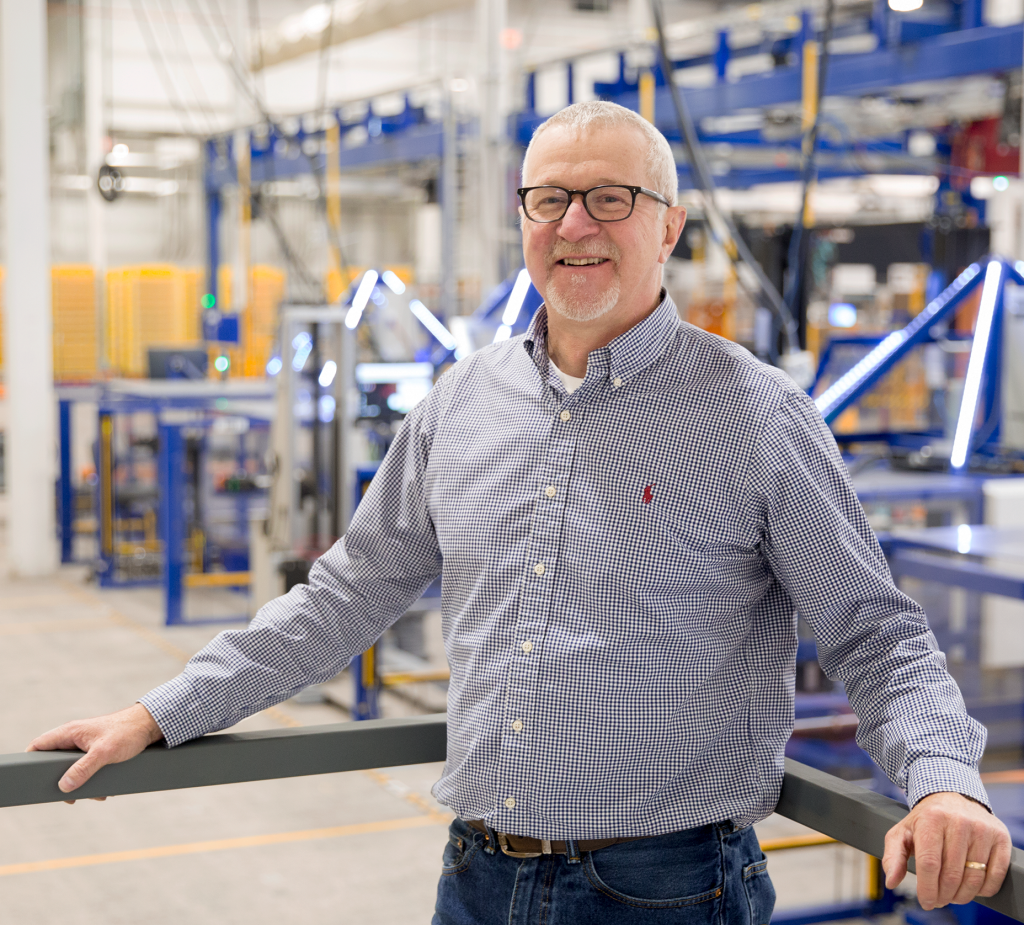Heading up operations for Amazon Robotics, where all of the robots for the online retailer’s fulfillment centers are built, Brian Davis, MDS ’84, MEC ’86, appreciates the power of technology and automation. But it’s the people who build the robots that make his career complete.
“I enjoy the dynamics between the people and what is happening on the production floor; how the material flows through them,” Davis says of his role as director of global operations and supply chain.
“The people part is just as interesting to me as the product itself.” People, in fact, are what drove Davis to get an MBA after graduating from Wentworth with a degree in mechanical engineering. After working in product development and on the production floor at small to mid-size manufacturing companies, Davis began transitioning to operations.
“The challenge of efficient operations is finding the right people with the right skill set to fill roles, and also identifying and filling skill set gaps,” says Davis. “To me, the floor is a live environment, not just a product developing from point A to B. There is an art and science to what people are doing.”
At Amazon Robotics, Davis was brought on to scale production of robot building. He spent the first three years developing the product line, changing equipment, automating, and improving test processes. He says that much of his success stems back to his Wentworth days.
“In addition to the strategic side of operations, I can still go out on the floor and solve a problem, right down to a plastic molding on a robot. The ability to look at the mold and understand how it was physically built is what I learned at Wentworth.”
He specifically points to hands-on work: building aluminum castings in the sand-casting lab and learning design basics he learned in the materials lab. “Some things can only be learned by doing. We used a ‘test to fail’ approach, for example, to determine where a material failure was and design back from that. It is a key concept that is lost among newer engineers, but it is critical to designing and producing quality products.”
Speaking of quality, those little orange robots have reduced the amount of walking for Amazon employees in the fulfillment centers: down from an average 15 miles to a few feet per day. The robots even “walk themselves” off the production line after they are built.
“I enjoy developing a team and process,” Davis says, “and literally watching product come off the line at a rate and scale that people didn’t believe could happen.”
— Kristen Walsh


